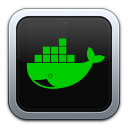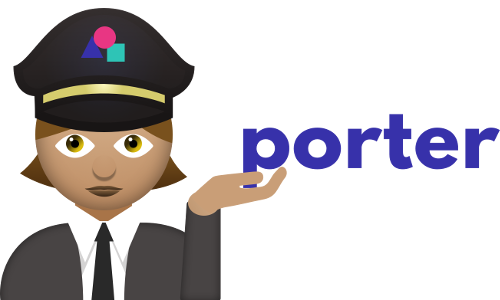Designing Command-Line Tools People Love

Carolyn Van Slyck
Senior Software Engineer at Microsoft
Often CLIs aren't designed,
functionality is added haphazardly
Design Goals
- Predictable
- Task oriented
- Friendly to both people and scripts
- High Quality
My CLI CV
Docker Version Manager

dep



Command Design
Pick your grammar
A system of rules that defines the structure of a command
Understand precedent in your ecosystem
- service catalog followed kubectl
- docker version manager followed node version manager
- dep didn't follow glide
- porter is setting precedent
Let's design a CLI!
¯\_(ツ)_/¯
Commands that read like sentences are easier to remember
$ emote add emoticon gopher --value ʕ •ᴥ•ʔ
added custom emoticon "gopher"
$ emote delete emoticon anxious
deleted custom emoticon "anxious"
Avoid positional arguments where the order matters
$ emote add repo funk https://x.com/funk.json 🤔
$ emote add repo https://x.com/funk.json funk 😅
$ emote add repo funk --url https://x.com/funk.json ✅
$ emote repo delete funk moar-funk
deleted funk and moar-funk
Support automation on your commands
$ emote list repos --output json
[
{
"name":"funk",
"url":"https://example.com/funk.json",
"size":100,
"created":"2019-07-15T14:32:22Z"
}
]
Default to human first output
I can't read ISO
$ emote list repos
NAME CREATED SIZE
funk 2019-07-15T14:32:22Z 10
$ emote list repos
NAME CREATED SIZE
funk 10 days ago 10
Sometimes the resource is implicit in the domain
$ emote list
NAME VALUE
shrug ¯\_(ツ)_/¯
tableflip (╯°□°)╯︵ ┻━┻
monocle ಠ_ರೃ
Aliases provide balance between brevity and discoverability
$ emote emoticon list
NAME VALUE
shrug ¯\_(ツ)_/¯
tableflip (╯°□°)╯︵ ┻━┻
monocle ಠ_ರೃ
Customize your help text
$ emote --help
emote helps you react in realtime
Resources:
emoticons
repos
Aliased Commands:
list List emoticons
Task-oriented commands are the most helpful
$ emote shrug
¯\_(ツ)_/¯ copied to the clipboard
$ emote shrug --dest slack
Your slack status is now ¯\_(ツ)_/¯
Domain vs. Grammar
Use your judgement about the domain when breaking with the grammar
Combine commands to make tasks easier
$ travis encrypt MY_SECRET_ENV=super_secret --add env
- Download the public key for your travis repository
- Encrypt the env var with the public key using openssl
- Insert an entry into .travis.yml with the encrypted value
$ travis pubkey | jq -r .key > mykey.pub
$ echo 'MY_SECRET_ENV=super_secret' \
| openssl rsautl -encrypt -pubin -inkey mykey.pub \
| travis env add
Piping is good for automation but people don't want to pipe
Give people a single command to perform a task
and they will thank you
Progress Towards Our Goal:
CLI People ❤️
- ✅ Easy to learn and remember
- ✅ Solves day-to-day tasks
- ❓ High Quality
A great CLI needs to have high quality code backing it
Let's build a CLI!
$ emote shrug
¯\_(ツ)_/¯
The final code is available at github.com/carolynvs/emote
What is spf13/cobra
- CLI Framework / Main Entrypoint
- Command Routing
- Error Handling
- Help Text
- Flag Parsing and Validation
Emote CLI Wiring
package main
import (
"fmt"
"os"
"github.com/atotto/clipboard"
"github.com/spf13/cobra"
)
func main() {
cmd := buildEmoteCommand()
if err := cmd.Execute(); err != nil {
os.Exit(1)
}
}
func buildEmoteCommand() *cobra.Command {
emote := &cobra.Command{
Use: "emote",
}
emote.AddCommand(buildShrugCommand())
return emote
}
Shrug Wiring
func buildShrugCommand() *cobra.Command {
var dest string
shrug := &cobra.Command{
Use: "shrug",
Run: func(cmd *cobra.Command, args []string) {
const emoticon = `¯\_(ツ)_/¯`
switch dest {
case "clipboard":
clipboard.WriteAll(emoticon)
fmt.Println(emoticon, "was copied to the clipboard")
default:
fmt.Println(emoticon)
}
},
}
shrug.Flags().StringVar(&dest, "dest", "clipboard", "Where to send your emoticon")
return shrug
}
Pro Tip: Create an Application Package
- Make functions that correspond 1:1 to the commands in your CLI
- Create happy little packages for everything
- Forget this is a CLI and follow your dreams 🌈
Emoticons Application Package
package emoticons
import (
"fmt"
"github.com/atotto/clipboard"
)
type App struct {}
func (a *App) Shrug(dest string) {
const emoticon = `¯\_(ツ)_/¯`
switch dest {
case "clipboard":
clipboard.WriteAll(emoticon)
fmt.Println(emoticon, "was copied to the clipboard")
default:
fmt.Println(emoticon)
}
}
Shrug Wiring with Application
shrug := &cobra.Command{
Use: "shrug",
Run: func(cmd *cobra.Command, args []string) {
// Much Better! 👍
app := emoticons.App{}
app.Shrug(dest)
},
}
Let's Add Configuration
dest = "slack"
[emoticon]
shrug = '¯\_(ツ)_/¯'
tableflip = '(╯°□°)╯︵ ┻━┻'
But I like yaml better
dest: "slack"
emoticon:
shrug: '¯\_(ツ)_/¯'
tableflip: '(╯°□°)╯︵ ┻━┻'
Excuse me, I need json for reasons...
{
"dest": "slack",
"emoticon": {
"shrug": "¯\_(ツ)_/¯",
"tableflip": "(╯°□°)╯︵ ┻━┻"
}
}
Meet your users where they are

What is spf13/viper
- Single combined configuration from multiple sources
- Reads from flags, config files, remote key/value stores, environment variables
- Smart defaulting: can tell if it was defaulted or set by the user
- Supports config files of multiple formats: json, yaml, toml, and more
Application Package with Viper
import "github.com/spf13/viper"
type App struct {
viper *viper.Viper
}
func New() (*App, error) {
v := viper.New()
v.AddConfigPath(".")
err := v.ReadInConfig()
if err != nil {
return nil, err
}
return &App{viper: v}, nil
}
func (a *App) Emote(name string, dest string) {
emoticon := a.viper.GetString("emoticon." + name)
...
}
Emote CLI Wiring with Dynamic Commands
func buildEmoteCommand() *cobra.Command {
app, err := emoticons.New()
if err != nil {
log.Fatal(err)
}
var dest string
emote := &cobra.Command{
Use: "emote",
Run: func(cmd *cobra.Command, args []string) {
emoticonName := args[0]
app.Emote(emoticonName, dest)
},
Args: cobra.ExactArgs(1),
}
...
Pro Tip: Keep Viper Isolated
Config Package
package config
import (
"github.com/spf13/viper"
)
type Config struct {
Emoticon map[string]string
}
func Load() (*Config, error) {
v := viper.New()
v.AddConfigPath(".")
err := v.ReadInConfig()
if err != nil {
return nil, err
}
c := &Config{}
err = v.Unmarshal(c)
return c, err
}
Application with Viper Tucked Away
type App struct {
Config *config.Config
}
func New() (*App, error) {
c, err := config.Load()
if err != nil {
return nil, err
}
return &App{Config: c}, nil
}
func (a *App) Emote(name string, dest string) {
// Yay! This feels more intuitive 👍
emoticon := a.Config.Emoticon[name]
Default Flags with Viper
type Config struct {
Dest string // Set by --dest or config file if not present
Emoticon map[string]string
}
func (c *Config) Load(cmd *cobra.Command) error {
...
// Bind the cobra flags to our config file
v.BindPFlags(cmd.Flags())
...
}
Final Emote Wiring
func buildEmoteCommand() *cobra.Command {
app := emoticons.New()
emote := &cobra.Command{
Use: "emote",
PreRunE: func(cmd *cobra.Command, args []string) error {
return app.Config.Load(cmd)
},
Run: func(cmd *cobra.Command, args []string) {
emoticonName := args[0]
app.Emote(emoticonName)
},
Args: cobra.ExactArgs(1),
}
emote.Flags().StringVar(&app.Config.Dest, "dest", "clipboard", "Where to send your emoticon")
return emote
}
Testing Emote
package emoticons
import (
"bytes"
"testing"
"github.com/carolynvs/emote/config"
"github.com/stretchr/testify/assert"
)
func TestApp_Emote(t *testing.T) {
const shrugEmoticon = `¯\_(ツ)_/¯`
out := &bytes.Buffer{}
app := &App{
Out: out,
Config: &config.Config{
Emoticon: map[string]string{"shrug": shrugEmoticon},
},
}
app.Emote("shrug")
assert.Contains(t, out.String(), shrugEmoticon)
}
We did it!

Gopher artwork by Ashley McNamara
licensed under the Creative Commons Attribution-NonCommercial-ShareAlike 4.0 License
References
- github.com/carolynvs/emote
- github.com/spf13/cobra - Commands and Flags
- github.com/spf13/viper - Configuration Management
- github.com/spf13/afero - File System Abstraction
- github.com/dustin/go-humanize - Natural Language Units
Thank you, Steve Francia! 💖